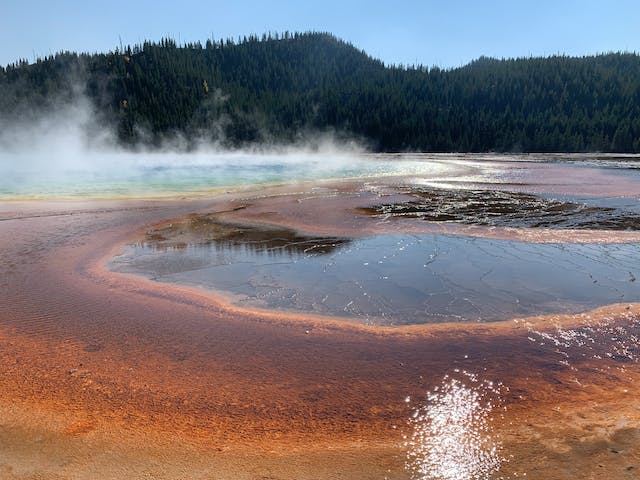How climate change may be impacting global health

“Climate change.” It’s been on the news in recent years more than ever before as we are approaching a point of no-return for our world. Climate change is the long-term shift in weather and temperature patterns – worldwide. While some of these shifts are naturally occurring, the worst impacts of climate change can be attribute to human activities. The main driver for producing heat-trapping gases, which consequently result in climate change, is the burning of fossil fuels – i.e., coal, oil, and gas.
Suffice to say, it’s bad news, and it’s affecting more than just our weather. It’s also impacting our health as a human population – crossing borders and contaminating our food and water sources. Our “global health” – which has been on the up for several decades, if not centuries, is starting to stall its progress. Here’s how climate change may be impacting our global health.
How do we define “global health?”
Global health, in essence, is defined as the health of all peoples in a worldwide context. Global health is far more than health-related issues, such as the novel coronavirus, which cross international borders – quite literally. Rather, global health refers to any potential health issue that can impact multiple countries. Climate change is something that may significantly impact global health due to changes in weather, such as extreme heat waves, cold snaps, flooding, wildfires, and more.
Prior to COVID-19’s arrival, global health and measures of human health on a global scale had largely improved from decades prior. Now, as climate change threatens to rear its ugly head in the worst of ways, that could flip.
Climate change slows global human health progress
Over the last 200 years, human life expectancy has virtually doubled. We can thank numerous social advancements for this, including a greater understanding of nutrition, better living environments, improved air quality, higher literacy rates, reduced mortality rates in childbirth, and – of course – the impact of vaccines. All these together have greatly increased our life expectancy and overall health.
So, where does climate change turn this all for the worse? Well, there’s a few ways that climate change can impact our global health. We’ll list some of the impacts and break them down in detail.
Human activities increase our exposure to waterborne pathogens
One of the major issues with human activities is the consequential production of toxins in our water. Those include cyanobacterial blooms, harmful algal, and chemicals. This affects our exposure to waterborne pathogens, including parasites, viruses, and bacteria. Moreover, climate change affects like frequent heavy rains and runoff can cause more of these pathogens to appear in our water systems, and especially heavy concentrations at certain times of the year.
Increased cases of bacteria-related food poisoning due to higher air temperatures
As the temperatures increase due to global warming, there’s a significant increase in cases of bacteria-related food poisoning. Bacteria prefers warmer temperatures to cold and will thrive as the globe heats up. Sometimes these diseases can be troubling and cause unpleasant gastrointestinal distress, but in more severe cases they may result in death.
Extreme events like floods and droughts could create food accessibility issues
In countries that may be experiencing significant weather events, such as droughts, earthquakes, and floods, food distribution could be stalled or halted entirely as roads and waterways are made inaccessible by storms. There are some populations that are particularly vulnerable to these risks, including third-world countries, low income individuals and families, and limited English proficiency groups. People with disabilities and chronic medical conditions may also suffer due to the lack of accessibility, especially if they need medications and/or the delivery of prescription drugs.
Extreme heat and climate change threats may influence stress response
Particularly vulnerable populations, such as individuals who suffer from mental illness or other conditions, may be more at risk for suffering from depression and anxiety due to the circumstances. In fact, extreme heat has been indicated as a factor in tripling the risk of death for individuals with pre-existing mental illness. Some groups of people may be higher risk than others, including pregnant/post-partum women, people with existing mental health conditions, low income individuals, emergency workers, older adults, and young children.
Climate change increases our exposure to chemical contaminants in food
There’s a variety of impacts from climate change which could result in our increased exposure to chemical contaminants in food. As an example, a higher sea surface temperature can result in an increased mercury content in seafood. Moreover, extreme weather events resulting in runoff will cause contaminants to be introduced into the food chain through larger water bodies.
What do we do?
We’re at a stage where our world needs us just as much as we need it. Climate change is a threat that puts every population and every nation at risk, regardless of their location. The best way we can tackle climate change is in our everyday lives, making small changes to reduce our impact on the world. Already, countries have begun to respond by establishing better monitoring systems for extreme weather events, reducing vulnerabilities, and creating infrastructure that accommodates future impacts of climate change.
What can you do? Ending climate change can begin with you. Panda7 is doing its part by planting a tree for every quote it receives and planting three for every policy purchased. See our Giveback page for more information on how we’re doing this.

